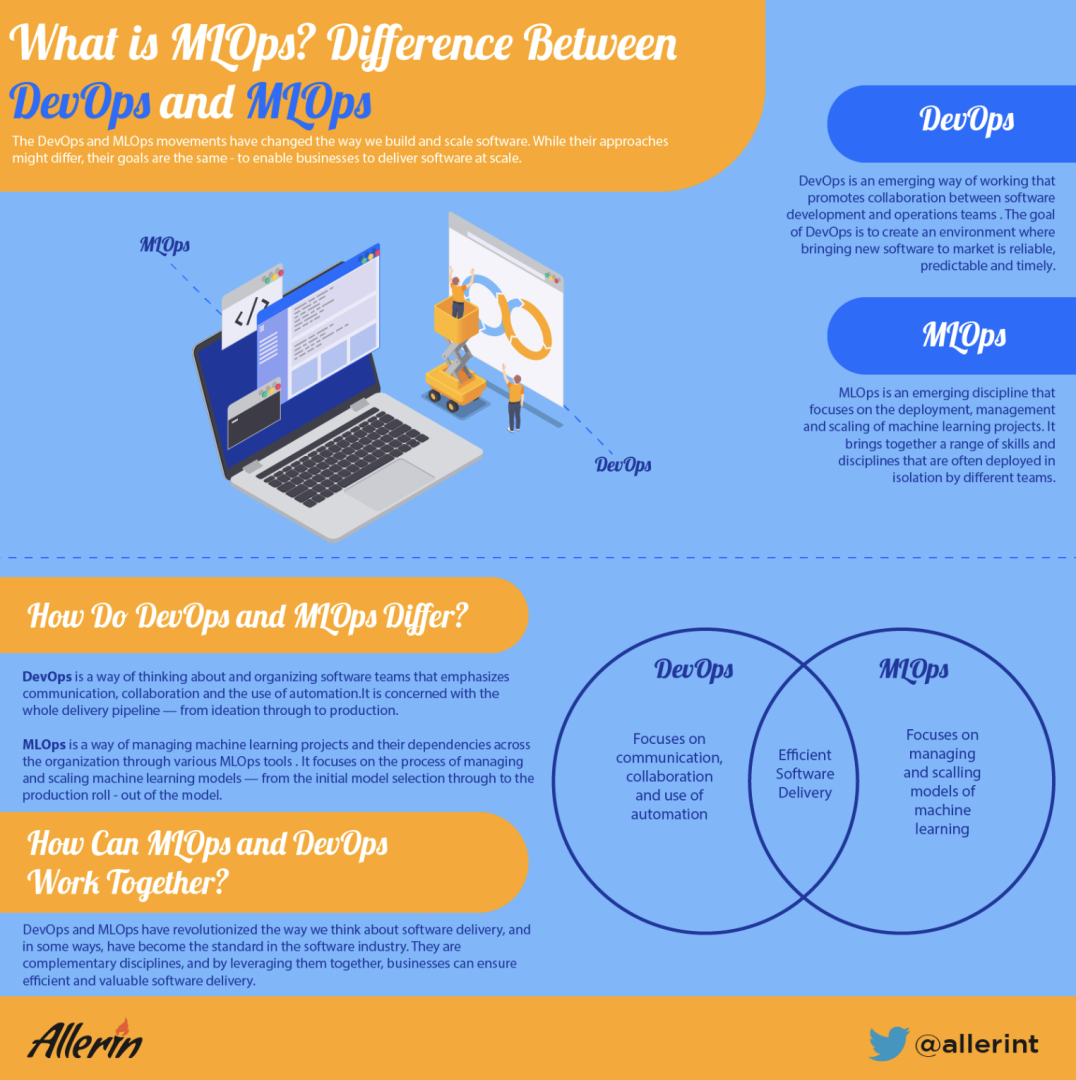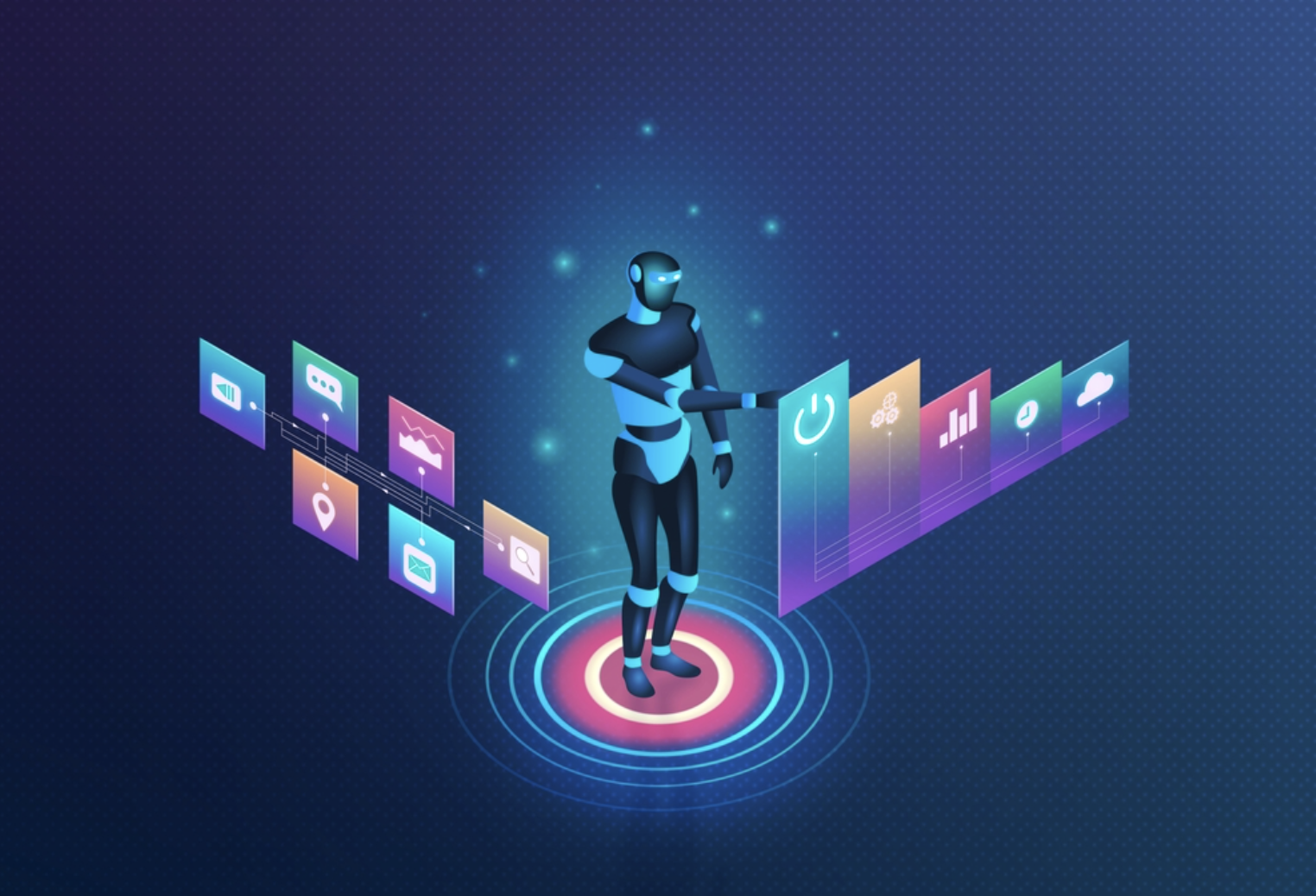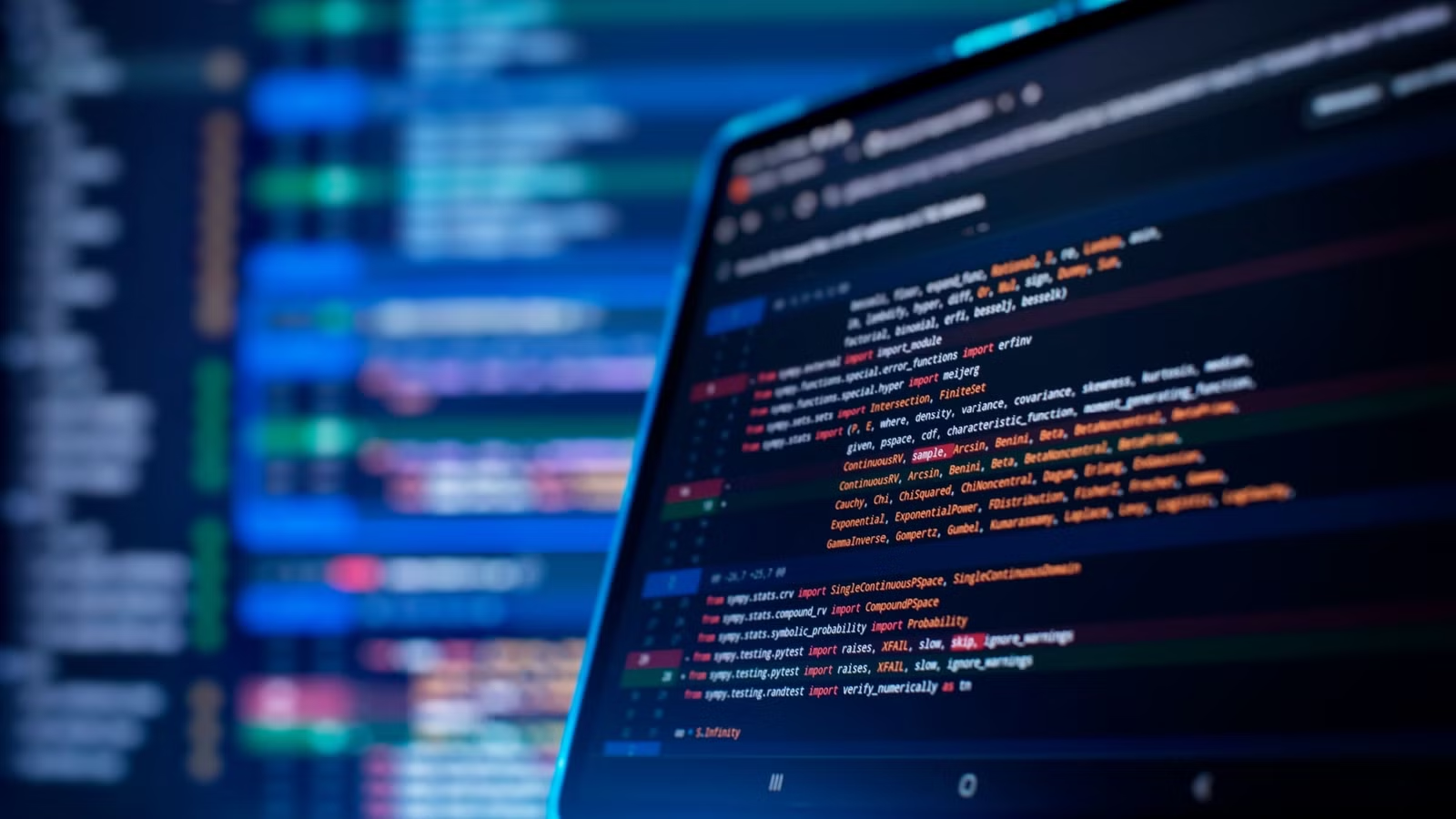The DevOps and MLOps movements have changed the way we build and scale software.
While their approaches might differ, their goals are the same – to enable businesses to deliver software at scale.
DevOps and Machine Learning (ML) are among the most transformative technologies of the past decade. Both have changed the way we think about and implement software as a service (SaaS), software that is delivered over the internet. However, these two fields are vastly different in their approach and methodology. In this article, we outline the fundamental differences between DevOps and MLOps, explore how they complement each other and provide advice on implementing them together to achieve greater throughput of your products.
WHAT IS DEVOPS?
DevOps is an emerging way of working that promotes collaboration between software development and operations teams. The goal of DevOps is to create an environment where bringing new software to market is reliable, predictable and timely. The term DevOps has been around since the early 2010s, but the ideas behind it have been popular for much longer. It can be applied to almost any organization that creates software and must coordinate between software engineers and operations/sales/marketing teams. DevOps is about more than just automation. While automation is a key part of DevOps, it’s just one piece of the puzzle. The other pieces are collaboration, communication, process and culture.
WHAT IS MLOPS?
MLOps is an emerging discipline that focuses on the deployment, management and scaling of machine learning projects. It brings together a range of skills and disciplines that are often deployed in isolation by different teams. It requires organizations to shift their focus from the technology of machine learning — like selecting a model, selecting the right data, or choosing an appropriate algorithm — to the process of deploying and managing these models throughout the product lifecycle.
HOW DO DEVOPS AND MLOPS DIFFER?

DevOps is a way of thinking about and organizing software teams that emphasizes communication, collaboration and the use of automation. DevOps is concerned with the whole delivery pipeline — from ideation through to production. On the other hand, MLOps is a way of managing machine learning projects and their dependencies across the organization through various MLOps
tools. It focuses on the process of managing and scaling machine learning models — from the initial model selection through to the production roll-out of the model.
HOW CAN MLOPS AND DEVOPS WORK TOGETHER?
As organizations begin to implement MLOps, they tend to ask themselves: “How can we support this transition with our other teams?” DevOps is a natural fit with MLOps, as they both encompass cross-team collaboration. DevOps can help MLOps teams to work more efficiently by reducing dependencies in the deployment pipeline. The DevOps team can streamline the deployment pipeline between feature teams, data engineering and data science teams. This can help MLOps teams to work more efficiently.
At the same time, DevOps can help MLOps teams by promoting a culture of experimentation. A key component of machine learning is experimentation – trying new models, with different hyperparameters, on different data sets. In an environment where experimentation is supported, machine learning engineers can collaborate with product teams to create a single, canonical model that is used throughout the product.
DevOps and MLOps have revolutionized the way we think about software delivery, and in some ways, have become the standard in the software industry. They are complementary disciplines, and by leveraging them together, businesses can ensure efficient and valuable software delivery.




















You must be logged in to post a comment Login